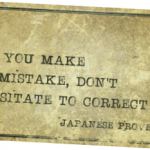
Casimiro PT / shutterstock.com
There are moments that the words don’t reach
There is suffering too terrible to name
You hold your child as tight as you can
And push away the unimaginable
—Lin Manuel Miranda
A friend of mine was killed a few days ago.
By the time you read this column, the scars will have already started to form. When I wrote these words, however, the wounds were still fresh.
In my first conception of this article, I was going to provide a detailed description of exactly what happened to her as she sat at the intersection in northern Baltimore County. I ultimately decided it was unnecessary; no matter the specifics of this tragic event, the fact remains that she was taken from us far too soon.
As a physician, of course I’ve encountered death before, but never the death of someone whose presence I felt so deeply in my life.
When people heard us argue in the hallways, some would turn and run in the other direction. Even more would pull up a chair to watch the show. My friend, a former trainee, sought me out in our clinic workroom several times weekly. She seemed to start every conversation with the premise that she was right about something and I should apologize for having, somehow, grievously wronged her. I would retort that I was sitting in the workroom to, well, work, and if I was always in the wrong, why was she constantly interrupting my work to ask for my opinion?
And thus, an argument would begin. I know to the casual observer, it looked like a brawl. But if you looked carefully, you would see it was actually a pas de deux, carefully choreographed with dramatic gestures and mimed feints. Each always knew to reach out before the other could fall. I miss those arguments, already.
The Kübler-Ross stages of grieving have been criticized for being inaccurate or incomplete.1 Contrarily, I am always struck by how much they seem to capture. When I received the news, I was in denial, which allowed me to turn around an obituary for publication in about an hour; it was almost like writing a work of fiction. When I learned the identity of the perpetrator, I experienced anger in a way I will not describe in these pages. I found deal-making has been part of my coping mechanism; from time to time over the past few days, I have found myself wondering when she would be back from her annual vacation with her family. And finally, depression. Just from a scientific standpoint, I’ve found it fascinating that I can be perfectly functional one minute and burst into tears the next.
I’m surprised to say The Boss got me through the first 24 hours. I learned of my friend’s death the same day Netflix posted its recording of Springsteen on Broadway. Unlike virtually everyone else who grew up on Long Island in my generation, I was not an overt fan of Bruce Springsteen. That said, he was pervasive, woven into the fabric of my childhood summers, more than I had even realized until that moment. The familiar music was like a cat, purring on my lap. I let the video play, twice, on low, as I took turns comforting and being comforted by my colleagues and friends.
Grief, of course, is a luxury reserved for those who do not have a full clinic. The day after my friend died, I looked at my schedule, and I sighed. I sometimes joke that there are days when I wish I could tell patients: I know you need me to be sympathetic. I just don’t have it in me today. Come back tomorrow; I’m happy to be sympathetic then.
I was about to start a week’s worth of those days. The patient with intractable pain whose orthopedic surgeon kept insisting had an active rheumatic disease as the cause. The patient with polymyalgia rheumatica who flew up from Florida because he is convinced he now has giant cell arteritis. In a normal week, I would just go with it, but now, I really just wanted to be left alone to wallow in my thoughts.


